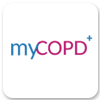Practical advice on how a healthy diet and lifestyle can help
Organisations you can turn to for help and advice
Below you will find links to information and organisations to help you manage existing health conditions.
The Reading Well Books on Prescription scheme helps people manage their own health and wellbeing through recommended self-help books endorsed by health experts. People can be recommended a title by a health professional, or they can visit their local library and take a book out themselves. The titles can be searched for and requested online or ask at your library and request them free of charge.
AGE-RELATED MACULAR DEGENERATION
Age-related macular degeneration (AMD) is a painless eye condition that causes you to lose central vision, usually in both eyes.
The NHS website has information on living with AMD including when to seek medical advice, treating the condition and reducing the risk of developing AMD.
Organisations
ALZHEIMER’S
Dementia is a progressive neurological disease which affects multiple brain functions, including memory.
The exact cause of Alzheimer’s disease is unknown, although a number of things are thought to increase your risk of developing the condition. These include:
- increasing age
- a family history of the condition
- previous severe head injuries
- lifestyle factors and conditions associated with cardiovascular disease
More information and resources about Alzheimer’s are available from the NHS website.
Organisations
Guides/resources
Driving and dementia – from Alzheimer’s Society
Caring for a person with dementia: A practical guide – from Alzheimer’s Society
Dementia-friendly sport and physical activity – from Alzheimer’s Society
How to make a lasting power of attorney – from Alzheimer’s Society
DEMENTIA
Dementia is a syndrome (a group of related symptoms) associated with an ongoing decline of brain functioning. This may include problems with:
- memory loss
- thinking speed
- mental sharpness and quickness
- language
- understanding
- judgement
- mood
- movement
- difficulties carrying out daily activities
Dementia Choices on the NHS website has a wealth of information and advice about dementia.
Organisations
Guides/resources
Driving and dementia – from Alzheimer’s Society
Caring for a person with dementia: A practical guide – from Alzheimer’s Society
Dementia-friendly sport and physical activity – from Alzheimer’s Society
How to make a lasting power of attorney – from Alzheimer’s Society
ASTHMA
Asthma is a common lung condition that causes occasional breathing difficulties. It affects people of all ages and often starts in childhood, although it can also appear for the first time in adults. The main symptoms are:
- wheezing (a whistling sound when breathing)
- breathlessness
- a tight chest – which may feel like a band is tightening around it
- coughing
The NHS website has information and advice about living with asthma including monitoring, breathing techniques, flying and financial support.
CHRONIC KIDNEY DISEASE (CKD)
Chronic kidney disease (CKD) is a long-term condition where the kidneys don’t work as well as they should. It’s a common condition often associated with getting older.
The NHS website has information on living with CKD including medication, diet, exercise, vaccinations, support groups, etc.
COPD
Chronic obstructive pulmonary disease (COPD) is the name for a group of lung conditions that cause breathing difficulties, mainly affecting middle-aged or older adults who smoke. It includes:
- emphysema – damage to the air sacs in the lungs
- chronic bronchitis – long-term inflammation of the airways
The NHS website has information and advice about living with COPD including monitoring, breathing techniques, flying, financial support and end of life care.
DIABETES – TYPE 1
Diabetes is a lifelong condition that causes a person’s blood sugar (glucose) level to become too high. The hormone insulin, produced by the pancreas, is responsible for controlling the amount of glucose in the blood. In type 1 diabetes the pancreas doesn’t produce any insulin.
Find out more from the NHS website about living with type 1 diabetes including your care team, lifestyle advice and support organisations.
DIABETES – TYPE 2
If you have type 2 diabetes, it’s important to look after your own health and wellbeing, with support from those involved in your care. Caring for your health will make treating your diabetes easier and minimise your risk of developing complications of diabetes. Self care for type 2 diabetes includes:
- maintaining good physical and mental health
- preventing illness or accidents
- effectively dealing with minor ailments and long-term conditions.
Find out more from the NHS website about looking after your own health and wellbeing when you have type 2 diabetes.
ECZEMA
Atopic eczema (atopic dermatitis) is the most common form of eczema, a condition that causes the skin to become itchy, red, dry and cracked.
Atopic eczema is more common in children, often developing before their first birthday. However, it may also develop for the first time in adults. It’s usually a long-term (chronic) condition, although it can improve significantly, or even clear completely, in some children as they get older.
Visit the NHS website for information and advice about living with eczema including symptoms, when to seek medical advice and causes.
HEART FAILURE
Heart failure means that the heart is unable to pump blood around the body properly. It usually occurs because the heart has become too weak or stiff. Heart failure doesn’t mean your heart has stopped working – it just needs some support to help it work better. It can occur at any age, but is most common in older people.
Find out more from the NHS website about living with heart failure including looking after your health and wellbeing, cardiac rehabilitation, monitoring, travel, support, etc.
MIGRAINE
A migraine is usually a moderate or severe headache felt as a throbbing pain on one side of the head. Many people also have symptoms such as nausea, vomiting and increased sensitivity to light or sound.
There are several types of migraine, including:
- migraine with aura – where there are specific warning signs just before the migraine begins, such as seeing flashing lights
- migraine without aura – the most common type, where the migraine occurs without the specific warning signs
- migraine aura without headache, also known as silent migraine – where an aura or other migraine symptoms are experienced, but a headache doesn’t develop
Find out more from the NHS website about migraine.
Organisations
OSTEOARTHRITIS
Osteoarthritis is a condition that causes joints to become painful and stiff. It’s the most common type of arthritis in the UK.
Find out more from the NHS website about living with osteoarthritis including living healthily, medications and regular reviews.
Organisations
Arthritis Care helpline. Call free on 0808 800 4050 – open 10:00–16:00 weekdays
OSTEOPOROSIS
Osteoporosis is a condition that weakens bones, making them fragile and more likely to break. It develops slowly over several years and is often only diagnosed when a minor fall or sudden impact causes a bone fracture.
Find out more from the NHS website about living with osteoporosis including diet and exercise, getting support, recovering from a broken bone and coping with pain.
PSORIASIS
Psoriasis is a skin condition that causes red, flaky, crusty patches of skin covered with silvery scales. These patches normally appear on your elbows, knees, scalp and lower back, but can appear anywhere on your body. Most people are only affected with small patches. In some cases, the patches can be itchy or sore.
The severity of psoriasis varies greatly from person to person. For some people it’s just a minor irritation, but for others it can have a major impact on their quality of life. Psoriasis is a long-lasting (chronic) disease that usually involves periods when you have no symptoms or mild symptoms, followed by periods when symptoms are more severe.
Find out more from the NHS website about living with psoriasis.
RHEUMATOID ARTHRITIS
Rheumatoid arthritis is a long-term condition that causes pain, swelling and stiffness in the joints. The symptoms usually affect the hands, feet and wrists. There may be periods where symptoms become worse, known as flare-ups or flares. A flare can be difficult to predict, but with treatment it’s possible to decrease the number of flares and minimise or prevent long-term damage to the joints.
Some people with rheumatoid arthritis also experience problems in other parts of the body, or more general symptoms such as tiredness and weight loss.
Find out more from the NHS website about living with rheumatoid arthritis including medication, diet and exercise, self-management and support services.
STROKE
A stroke is a serious life-threatening medical condition that occurs when the blood supply to part of the brain is cut off. Strokes are a medical emergency and urgent treatment is essential. Effective treatment of stroke can prevent long-term disability and save lives.
Find out more from the NHS website about stroke including recovering from a stroke, preventing stroke, caring for someone who has had a stroke and much more.
Organisations
Different Strokes – helping younger stroke survivors
Headway – the brain injury association




